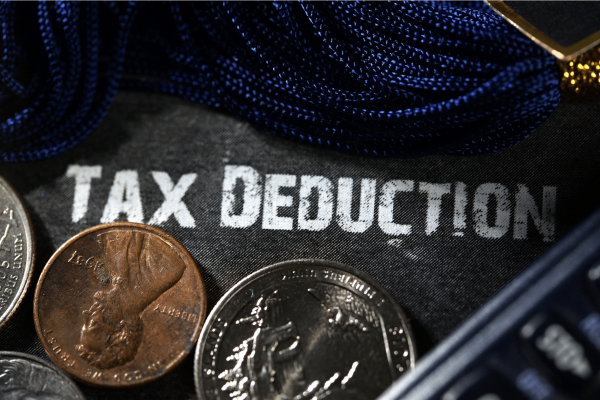Tax Preparation in Hong Kong: What You Need to Know for a Smooth Filing Season
Whether you’re running a start-up in Hong Kong or managing a growing business from overseas, tax season can feel overwhelming — especially if you’re unfamiliar with the system.
Though Hong Kong’s tax regime is one of the most business-friendly in the world, it may still be challenging to get it right.
In this guide, we’ll walk you through the essentials of tax preparation in Hong Kong — what a tax preparer actually does, the different types of tax returns, key deadlines, and how to avoid common pitfalls.
What Does a Tax Preparer Do?
A tax preparer, also called tax advisor, is a professional who helps individuals and businesses organise and file their tax returns accurately and on time.
In Hong Kong, a qualified tax preparer can:
- Organise your financial records and supporting documents
- Help you make proper income reporting and claim tax deductions, allowances and incentives
- Ensure compliance with the Inland Revenue Department (IRD)
- File your returns (or help you file them via the eTAX portal)
- Liaise with the IRD on your behalf, especially if there are queries or audits
For business owners with cross-border operations or international income, working with a professional who understands both local and international tax law is critical.
Types of Tax Returns in Hong Kong
Hong Kong operates on a territorial tax system, meaning, in general, only income earned or sourced within Hong Kong is subject to tax.
Under the Inland Revenue Ordinance (IRO), there are three main types of tax: Salaries Tax, Profits Tax, and Property Tax.
Hong Kong does not impose tax on gain from sales of capital assets (capital gains tax) under the general circumstances. However, gain from disposal of capital assets earned by a MNE entity carrying on business in Hong Kong may be subject to profits tax under the Foreign Sourced Income Exemption Regime.
The type of return you need to file depends on your capacity and your income sources.
Here’s a breakdown of the most common tax returns individuals and businesses encounter:
1. Profits Tax Return (PTR)
This return is in general issued to entities (except sole proprietorship business) registered in Hong Kong and/or having a business registration obtained in Hong Kong.
The Profits Tax Return declares, amongst others, assessable profits (or losses) and must be accompanied by audited financial statements (for incorporated businesses) – unless the entities have obtained a dormant status from the Hong Kong Companies Registry.
The Inland Revenue Department (IRD) typically issues PTRs annually in early April. The standard deadline is one month from the date on the PTR form.
Businesses that file their return electronically through eTAX, may receive an additional one-month extension.
Additionally, you may qualify for an extension under the Block Extension Scheme, depending on your company’s financial year-end.
Accurate preparation of your PTR is critical, especially if you’re making offshore or other kinds of non-taxable claims, applying for certain tax incentives, deductions, or operating across borders. Misstatements or omissions can lead to tax audits and penalties.
2. Individual Tax Return
This return applies to individuals earning income from employment or directorship fees (Salaries), sole proprietorship (Profits), or solely owned rental properties (Property) in Hong Kong.
The IRD issues the return (Form BIR60) each year, usually in early May, and it covers the full financial year from 1 April to 31 March.
If you have multiple income sources — for example, income from both employment and property — you may benefit from electing Personal Assessment, a special tax calculation method.
Personal Assessment is a method of calculating your total tax liability in a more consolidated and potentially tax-efficient way.
Instead of separate assessments under Salaries Tax, Profits Tax, and/or Property Tax in the BIR60 form, your income is aggregated, and allowable deductions and tax allowances are applied to the total.
This method may lower your overall tax bill if you are subject to more than one type of tax (e.g. business income and rental income).
However, if your only source of income is employment (i.e. Salaries Tax), there’s generally no advantage in choosing Personal Assessment.
Electing Personal Assessment is optional, and election is required to be made when filing your Individual Tax Return.
3. Employer’s Return (IR56 Series)
Employers in Hong Kong are legally required to file an Employer’s Return each year, which is to report the remuneration paid to employees and/or directors. This is done through the BIR56A and IR56B forms.
When a Hong Kong company receives the BIR56A form issued by the IRD, the company must complete and submit it, even if they had no employees during the assessment period.
The Employer Return forms are usually issued in early April and must be filed within 1 month of the issue date.
Failing to file an Employer’s Return on time — or omitting critical details — can result in fines or lead to tax investigations.
Employers must also ensure proper tax clearance is obtained when staff are leaving Hong Kong.
Why Tax Preparation Is Different in Hong Kong
Many entrepreneurs assume that Hong Kong’s low corporate tax rate (currently 8.25% on the first HKD 2 million of profits, then 16.5%) makes tax preparation simple.
But the complexity often lies in the details — especially for companies with offshore/non-taxable claims, variable income, or international shareholders.
Key challenges include:
- Making valid offshore/non-taxable claims (and keeping proper documentation)
- Making correct and accurate tax deduction/allowance claims
- Making proper disclosure and preparing the required breakdowns/tax schedules in the tax computations
- Completing the required supplementary forms
- Understanding double tax agreements
- Determining Hong Kong-source income vs. foreign-source income
- Responding to IRD queries and notices
A professional tax preparer can guide you through these grey areas and help you avoid unnecessary risk.
Key Tax Deadlines and Late Filing Penalties
Missing a deadline in Hong Kong can lead to penalties — and in some cases, prosecution. Here are some dates to watch:
- Employer’s Return: Due within 1 month from issue (usually April)
- Individual Tax Return: Usually issued in May, due within 1 month, (with additional one month extension if handled by a tax representative)
- Profits Tax Return: Issued annually around April, deadlines vary depending on financial year-end.
Late filing can result in:
- Fines
- Estimated assessments (you pay what the IRD estimates — not always in your favour)
- Additional penalties for repeated non-compliance
- Prosecution
Filing early and accurately is your best defence, HKWJ Tax Law experts can help.
Choosing the Right Tax Preparer in Hong Kong
Tax preparation isn’t just about compliance — it’s also an opportunity to optimise. When choosing a tax preparer, look for someone who:
- Has experience with both local and international clients
- Understands the IRD’s procedures and tax incentive schemes
- Can advise on tax planning, not just filing
- Communicates clearly and proactively
- Uses up-to-date tools for efficiency and security
HKWJ Tax Law Can Help
Tax preparation in Hong Kong doesn’t need to be stressful — but it does need to be done right.
Whether you’re managing a local SME or expanding your overseas business into Asia, having the right support can save you time, reduce your tax exposure, and keep your operations smooth and compliant.
Need help preparing your Hong Kong tax returns?
Our team works with businesses, entrepreneurs and individuals across Asia and Europe to ensure full compliance and optimised tax strategies. Contact us to schedule a consultation.





